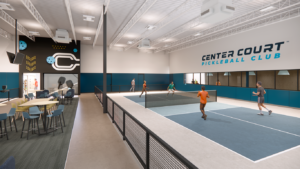As we face another week of extreme heat warnings, your Neighborhood Auto Repair Professionals (NARPRO) are sharing the most common heat-related vehicle issues and ways drivers can avoid heat breakdowns.
READ ALSO: 15 must-see places for an Arizona road trip
Batteries
• Heat evaporates battery fluids, which can speed up corrosion.
• Batteries in Arizona don’t last as long as cooler climates. If your battery is more than two years old, have it tested.
Air Conditioning
• If it’s running a little warm you might have low refrigerant, a loose drive belt, clogged valves or filters or clogs in the condenser.
• Neglecting minor issues like a leaky hose can lead to early compressor failure, which can top $1000 to fix.
Tires
• Under-inflated tires create excessive heat and stress that can lead to a blowout.
• According to the Rubber Manufacturers Association, 85 percent of drivers don’t know how to properly inflate their tires.
• To get the most accurate pressure reading, check tires when they’ve been driven less than a mile.
• Regularly inspect the tread and sidewalls for irregular tread, wear, cracking cuts or other damage. Even minor damage can lead to eventual tire failure.
• The minimum acceptable tread depth is 3/32 inch which is about the distance from the edge of a penny to the top of Abe Lincoln’s head, but you don’t want to strive for the minimum during an Arizona summer.
Fluids
• Just like for humans, fluids are essential for cars. Not only do fluids lubricate parts but they also carry heat away from important parts. Extreme heat will lead to evaporation and potentially reduce the cooling effect, which can lead to your car overheating.
• Make sure engine (motor) oil, coolant/antifreeze, transmission fluid, brake fluid, and power steering fluid are full. If you want to replace fluids on your own, be sure to check the owner’s manual so you use the right type for your vehicle.
Blades, Belts and Hoses
• If you can’t recall when you last changed windshield wiper blades, do it now. You don’t want to discover they’re cracked and warped during monsoon season.
• Like wiper blades, the heat can create problems on other rubber parts like belts and hoses. Check for signs of wear and cracking and if you see anything questionable, get it fixed.
Emergency Kit
• When temps are at their peak, so are calls for road service. Having a fully charged cell phone isn’t enough if you’re stuck waiting for hours.
• Carry water, jumper cables, a flashlight, first-aid kit, reflective warning triangles, and an umbrella for shade if you need to exit your vehicle.
• Never let your gas tank fall below one-quarter. If you’re traveling in remote areas, it’s a good idea to keep the tank half-full. If you’re stranded you want to be able to run theAC until help arrives.
NARPRO (Neighborhood Auto Repair Professionals): The Neighborhood Auto Repair Professionals (NARPRO) helps car owners find skilled and honest car repair shops. NARPRO only recommends independent, family-owned, full-service auto repair shops that have passed 26 rigorous tests. Visit www.NARPRO.com to find recommended shops near work or home. NARPRO is the easiest way to find an honest mechanic in the Valley.




